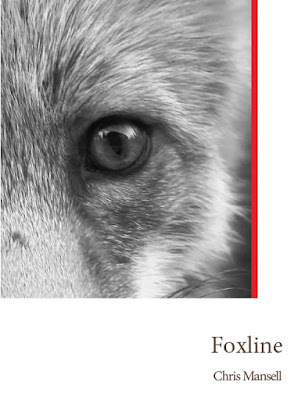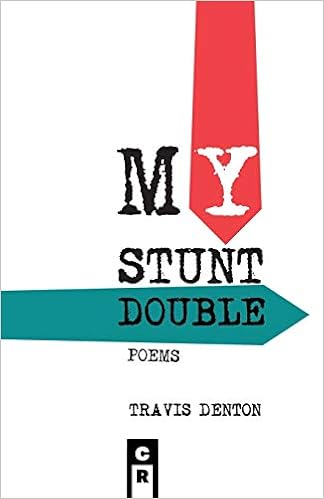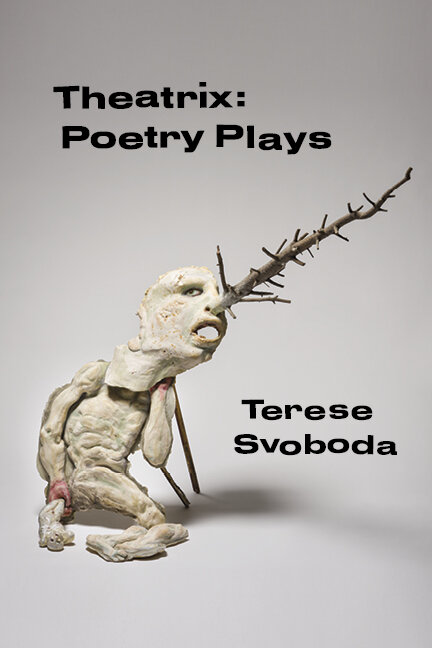 Foxline is an exquisite, bold work of poetry, with each poem taking on multiple meanings and holding back just the right amount at the point of denouement to allow space for the reader to pause, think, and engage. Mansell’s writing is masterly in its restraint, and beautifully written throughout. Though Flying Island’s Pocket Poetry series uses a tagline of “minor works,” Foxline is anything but.
Foxline is an exquisite, bold work of poetry, with each poem taking on multiple meanings and holding back just the right amount at the point of denouement to allow space for the reader to pause, think, and engage. Mansell’s writing is masterly in its restraint, and beautifully written throughout. Though Flying Island’s Pocket Poetry series uses a tagline of “minor works,” Foxline is anything but.
Category: Poetry Reviews
A review of Mostly Sonnets: Formal Poetry in an Informal World by James A Tweedie
 Tweedie is a very fluid writer with a clean, clear, expressive style, which grabs ahold of you with its immediacy and beauty of execution. What is most striking is the mixture of Christian belief intermingled with an honesty of thought, never coming across as sermonizing, but expressing a faith-filled wonder and appreciation for the natural world and the place of the intelligent believer within it.
Tweedie is a very fluid writer with a clean, clear, expressive style, which grabs ahold of you with its immediacy and beauty of execution. What is most striking is the mixture of Christian belief intermingled with an honesty of thought, never coming across as sermonizing, but expressing a faith-filled wonder and appreciation for the natural world and the place of the intelligent believer within it.
A Review of Beyond the Moon’s White Claw by Patty Dickson Pieczka
 Perhaps what is most heartrending is the poem is cast in the present simple conditional mood until the last sentence throws it into the past, which cannot be changed. The speaker’s helplessness before the pain of the PTSD of her ex-husband is compounded and yet inevitably accepted by that painful turn. In the collection, the various symbols from here on begin reversing and resolving.
Perhaps what is most heartrending is the poem is cast in the present simple conditional mood until the last sentence throws it into the past, which cannot be changed. The speaker’s helplessness before the pain of the PTSD of her ex-husband is compounded and yet inevitably accepted by that painful turn. In the collection, the various symbols from here on begin reversing and resolving.
A review of Airplane Baby Banana Blanket by Benjamin Dodds
 From the first poem, in this compelling book, the reader will experience a variety of emotions as well as thoughts questioning the ethics of the experiment. In narrative poetry form, with creative talent and imagination, the author recount events in in the life of Lucy. His words flow with musicality and stories are fascinating.
From the first poem, in this compelling book, the reader will experience a variety of emotions as well as thoughts questioning the ethics of the experiment. In narrative poetry form, with creative talent and imagination, the author recount events in in the life of Lucy. His words flow with musicality and stories are fascinating.
A review of My Stunt Double by Travis Denton
 Mourning vies with exultation at every crisp turn of phrase and every crunchy, unexpected line break. Some of that mourning is for the earth, for its creatures, for human folly and ignorance, for the apprehended apocalyptic end of days. Mourning is sometimes captured in references to popular music hits — Tom Petty, Bruce Springsteen, Johnny Cash always blaring out of cars of boys, and fathers who don’t know what to do with, without or about the boys — and sometimes in the symphony of stars, skies, space and otherworldliness.
Mourning vies with exultation at every crisp turn of phrase and every crunchy, unexpected line break. Some of that mourning is for the earth, for its creatures, for human folly and ignorance, for the apprehended apocalyptic end of days. Mourning is sometimes captured in references to popular music hits — Tom Petty, Bruce Springsteen, Johnny Cash always blaring out of cars of boys, and fathers who don’t know what to do with, without or about the boys — and sometimes in the symphony of stars, skies, space and otherworldliness.
A review of HellWard: The English Cantos Volume One by James Sale
 In HellWard we find powerful, often disturbing language, simultaneously raw and refined, beautiful and at times jolting in its honesty. What struck me particularly throughout the book is the way Sale uses mono-syllabic words to powerful effect: death, hell, pain, depth, weak, guts, ache, dark, gunk, blight, flesh, tears, stench, dread, blood, hiss, oozed,“clots of gore” (a wonderful image), cries, groans, filth, swill, “smelt the blood” (another wonderful image), skull, skin, bone, ice, heat, hot, bare, raw, mess, froth, “dark webs,” “hard knots”, guilt, “black holes,” blotch, stank, bleak, slop, “greed and pride and lust,” and “sick slime.”
In HellWard we find powerful, often disturbing language, simultaneously raw and refined, beautiful and at times jolting in its honesty. What struck me particularly throughout the book is the way Sale uses mono-syllabic words to powerful effect: death, hell, pain, depth, weak, guts, ache, dark, gunk, blight, flesh, tears, stench, dread, blood, hiss, oozed,“clots of gore” (a wonderful image), cries, groans, filth, swill, “smelt the blood” (another wonderful image), skull, skin, bone, ice, heat, hot, bare, raw, mess, froth, “dark webs,” “hard knots”, guilt, “black holes,” blotch, stank, bleak, slop, “greed and pride and lust,” and “sick slime.”
A review of Sonnets by Theresa Rodriguez
 As both a poet and a trained classical singer, Rodriguez is more consciously aware of the musicality of poetry than most, and it is not surprising that other poems in this collection such as ‘The Piano,’ and ‘Oh, When I Hear,’ also take music as a subject. Most are of course not directly about music, per se, though all display the melodious qualities of regular meter and perfect rhyme.
As both a poet and a trained classical singer, Rodriguez is more consciously aware of the musicality of poetry than most, and it is not surprising that other poems in this collection such as ‘The Piano,’ and ‘Oh, When I Hear,’ also take music as a subject. Most are of course not directly about music, per se, though all display the melodious qualities of regular meter and perfect rhyme.
A review of Theatrix: Poetry Plays by Terese Svoboda
 Svoboda’s verse is playful, a true delight. As Alan Michael Parker writes in his Introduction in the style of an Introduction, “…give us voices, and their own inner voices, the ways we have made gender our playmates, and how we make our bodies the play. Then stand close, and watch the players play.
Svoboda’s verse is playful, a true delight. As Alan Michael Parker writes in his Introduction in the style of an Introduction, “…give us voices, and their own inner voices, the ways we have made gender our playmates, and how we make our bodies the play. Then stand close, and watch the players play.
A review of My Father’s Face by Chandra Gurung
My Father’s Face is a very welcome collection from a neighbouring country, Nepal, and its contemporariness is what makes it both relevant and moving. At some places the editing and the translation could have been a bit tighter, and minor irritants like phrases/ structures like ‘an ocean of deep gashes’ or ’I am delightful’ could be worked on for future editions. Also an Introduction to the volume by the poet himself would help in grounding the poetry in more specific locales and circumstances.
A review of Alcestis in the Underworld by Nina Murray
 Murray does not try to establish a perfect correspondence between these poems and the myth’s incidents and details; instead, the poems move freely back and forth between two planes of existence, the personal and the mythological, as they recall Murray’s youth in Ukraine and her subsequent career in the U.S. diplomatic service, particularly her time in Russia. The myth itself functions in the poems more like a reticulated canopy, casting an occasional net of shadows over the scenes taking place below.
Murray does not try to establish a perfect correspondence between these poems and the myth’s incidents and details; instead, the poems move freely back and forth between two planes of existence, the personal and the mythological, as they recall Murray’s youth in Ukraine and her subsequent career in the U.S. diplomatic service, particularly her time in Russia. The myth itself functions in the poems more like a reticulated canopy, casting an occasional net of shadows over the scenes taking place below.